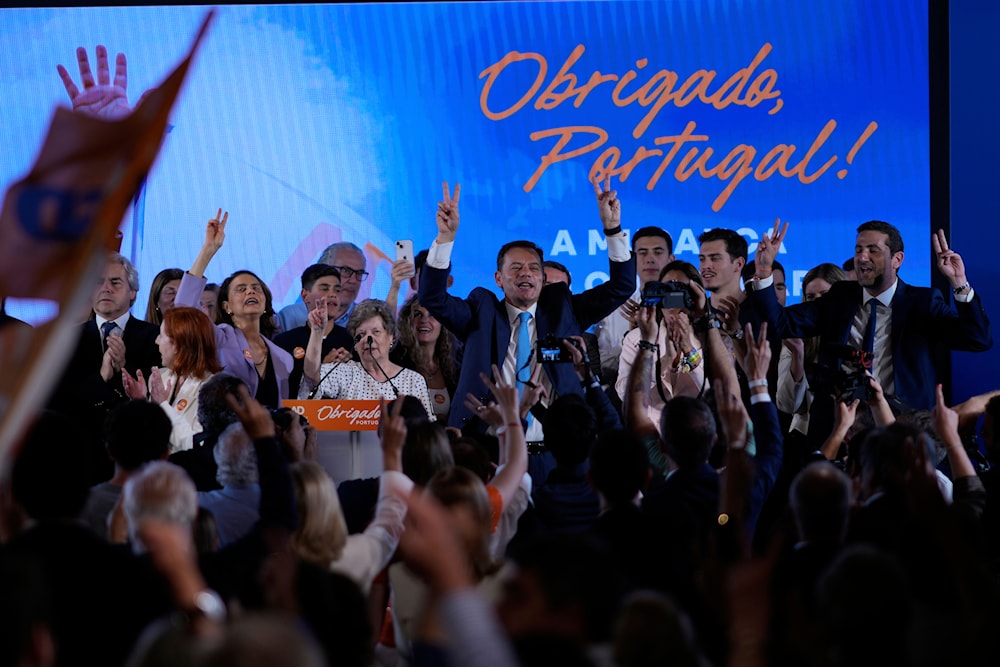Portugal's president holds talks with parties to name next PM
Portuguese President Marcelo Rebelo de Sousa has begun consultations with political parties following an inconclusive election.
-

Portuguese Incumbent Prime Minister and leader of the center-right Social Democratic Party, Luis Montenegro, reacts with his supporters, following Portugal's general election, in Lisbon, on May 19, 2025. (AP Photo/Armando Franca)
Portuguese President Marcelo Rebelo de Sousa has initiated formal consultations with political parties following Sunday’s divisive general election, which failed to produce a parliamentary majority.
The talks, which began Tuesday, aim to identify a viable path toward forming Portugal’s next government. The first meeting was held with senior figures from the centre-right Social Democratic Party, led by outgoing Prime Minister Luis Montenegro.
Montenegro’s electoral coalition, the Democratic Alliance (AD), emerged as the top contender, securing 89 seats in the 230-member parliament. However, the result fell short of the 116 seats required for a majority government.
Despite the shortfall, Montenegro, 52, is widely expected to be reappointed as prime minister. He had called the snap election amid a controversy over alleged conflicts of interest tied to a family-run company, aiming to consolidate political support.
The Democratic Alliance modestly expanded its parliamentary presence, gaining nine additional seats compared to the previous term.
Chega and socialists tie for second place
President Rebelo de Sousa also met with representatives from the two parties that tied for second place: the far-right Chega ("Enough") movement and the Socialist Party, which saw a decline in support.
Both parties claimed 58 seats each, with Chega marking a significant surge in influence. However, Montenegro has ruled out forming a coalition with Chega, deepening the political uncertainty surrounding the formation of a stable government.
Four parliamentary seats remain undecided, as they represent Portuguese citizens living abroad.
The final distribution of these seats could slightly alter the balance of power, but is unlikely to secure a majority for any single party.
President Rebelo de Sousa is expected to continue meeting with all major political parties over the coming days, as he has emphasized the importance of ensuring that any new government is stable and capable of lasting a full term.
Portugal has held three parliamentary elections in the last three years, reflecting growing political volatility in the western European nation.

 2 Min Read
2 Min Read








